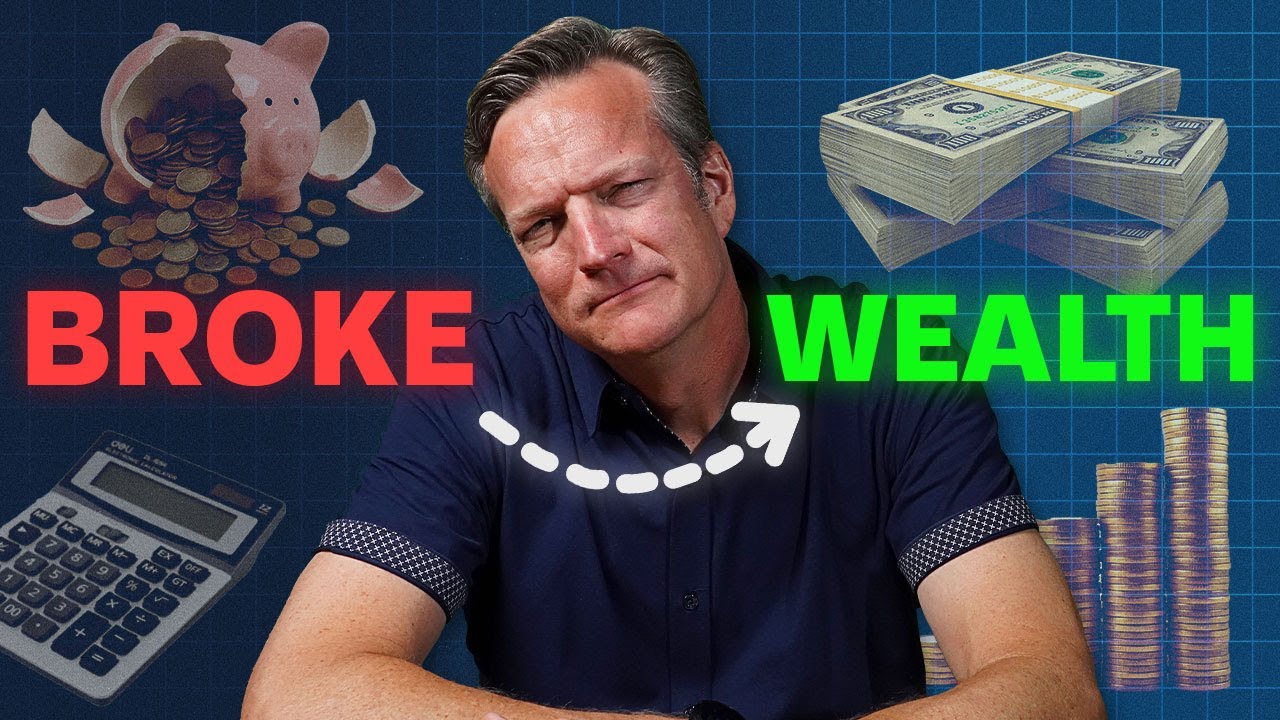This is a good one that, we can be unbiased on. Ethan says, "Hey, what are some signs that you need a financial advisor? Is there a difference between a financial planner and a financial adviser? Let me just start this one off for a moment. I'm going to answer the second part. Uh, one of the things that I think is different, by the way, for those of you who are just now listening to us for the first time, we are financial advisors. So let me go ahead and put that out there. And financial plans, the problem with our industry is that really anybody can call themselves anything, right? Somebody can call themselves a financial coach, a financial adviser, a financial planner, a financial consultant, a financial intermediary, fill in the blanks. So I think just operating by title alone won't give you enough information. What you really need to do is understand what that person does. Are they someone who only sells certain types of products? Are they someone who actually does financial planning? Are they someone who only focuses on retirement plans? Are they someone who just does taxes? You need to understand, okay, what does the person do and what is the thing that I'm looking for?" And so that goes right into Ethan's question, "What are some of the signs that I might be at the place where I need to speak with someone about help with my finances?"
Yeah, I love this question. I actually did an episode. It's crazy to give a shout-out to another show to push people away, but I did a ride-along with George Kamel, yeah. And he brought up another, you know, Robert Kiyosaki has the Rich Dad, Poor Dad series, and, you know, and I've read Kiyosaki's book, and there's a lot of great stuff in there. But he, with a passion, hates financial advisors. So I think George, I think I got him because I think he was going to give me a gotcha question. But I told him, "Look, I think in a lot of ways, I agree with Kiyosaki on the fact that when people are in the beginning of their journey, you can learn so much. We live in a great new world where you can educate yourself, you can figure out a lot. But I do want to caution you. I think there is a graduation point. This is when the question that Ethan asks is when do you hire a financial adviser?"
Here's an experience share, and you'll see where this all folds in. I thought when I was, you know, I wrote a book, and then I was going to self-publish, and then I had enough people whispering to me and saying, "Man, with your platform, you really ought to give this book thing the opportunity to be in public libraries." That's the legacy stuff that I think you're trying to do with this book thing. So I was like, "Okay, I'll go traditional publishing then because the opportunity was presented." But I was like, "But I'll self-represent myself because I'm a do-it-yourself type of guy." And, um, and I got my first offer. It was actually too easy that I got the first offer from a publisher, and I felt really bad about this later because I found myself Googling all the terms, and I realized, "Oh my gosh, I am way outside of my knowledge of what even these terms mean." Not a good sign. And so I was like, "Wait a minute, Brian, what are you doing? Here you are, you're a financial adviser, a financial planner. You help people because you've gone through hundreds of retirements for clients, unfortunately, tons of passing away of relatives, um, of helping people with all kinds of unique things. But yet, here you are, in your publishing, you've only done one, but there are people who've done hundreds of these." As well, I had an aha moment, and I hired a literary agent. It was the best decision I made. I mean, I still, I tell every email, he probably thinks, "Is this guy really this cheesy?" Because every email I'm like, "Brian, I hope you know how much I appreciate you in this journey because I went the other path. I did it. I tried to start the process myself, and I quickly realized." So now I'm so appreciative. And that's why we used to have a saying, we haven't talked about it in a long time, Bo, is that our best client is a client with a broken heart from a bad previous adviser or a bad situation from a do-it-yourself moment. Because here's where I get to the crux of what Ethan's asking, when you are creating success, you will reach a point where you're like, "Man, I am out over my skis on this. The risk of failure or the risk of making a mistake is going to exceed the value of what you're doing because you are the CEO of a seven-figure enterprise, or soon to be a seven-figure enterprise, likely. And you're going to be trying to figure out, 'Can I retire? How do I get the kids' education? How do I do my estate structure in the right way so that I'm not banding this in the wrong way? How do I do Roth conversion strategies?' All these things are going to happen. And then you're going to say, 'I think I need somebody.' And for really, literally, pennies on the dollar, you can hire a CFO to come in who's done hundreds of these situations. That's the moment, Ethan. So I'm not telling you I want you to come learn, apply, and grow for free. That's the abundance cycle. Come take as much as you want. We'll continue to feed you and give you the information and educate you on how all this works financially. But there will be a point that you will graduate to the next level because of the complication of the moment. And that's why I love giving experience shares because it's just, you, we all, do-it-yourselfers, all of us that are good with money, sometimes that can be a fault that we're so good with money that we don't know when to ask for help. And that's why I love what we get to do for a living. That's why I sleep well at night because not only do we get to educate, but we also get to help people maximize their opportunities. Ethan, I think there's two things I'll just add to that because I agree with all that fully. There are really three times that we think you might, or three signs that you might want to hire a financial adviser. The first is the gravity of your decisions is so great you feel uncomfortable going at it alone. Ten percent on $10,000 is not the same as a 10% uh-oh on a million dollars, right? So the scope and the gravity of the decisions become pretty heavy. The second is exactly what you said, your life gets complicated, you don't know all the things that you don't know, things just come at you, and you want to know how to navigate that. And the third one, and I think a lot of people see this, is life just gets busy. As it gets complicated, it also gets busier. We get pulled in a thousand different directions with a thousand different things going on, and it's very easy for financial matters, like updating my savings amount or updating my beneficiaries or making sure that I'm properly insured or reviewing my tax return or all these different things kind of fall by the wayside, and you just check the box and check the box and check the box. So what a great financial adviser can do is keep those things in front of you. So if you find yourself in one of those three areas, or maybe you're at all three, it might be a pretty good indicator. So let me give you something that will help you. If you go out to our website, go to
moneyguy.com/resources. We have eight questions you can go ask a financial adviser. So if you're thinking about hiring someone or maybe you're working with someone, you want to kind of figure out where they are, ask them these questions, and they should be able to give you very well-thought-out, detailed responses that you feel comfortable with that make you feel great about working with them. Fantastic question, Ethan, and I love that you are thinking through that. For more information, check out our
free resources.













